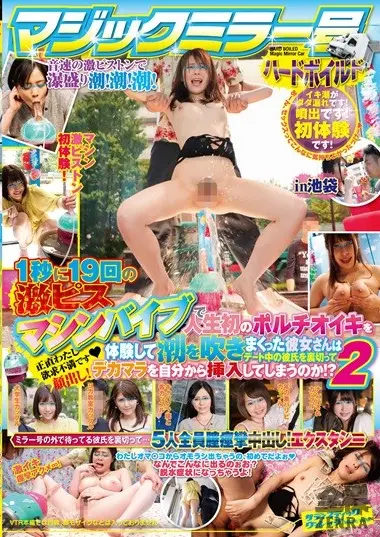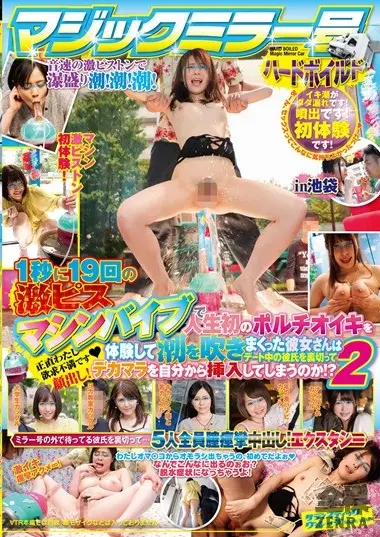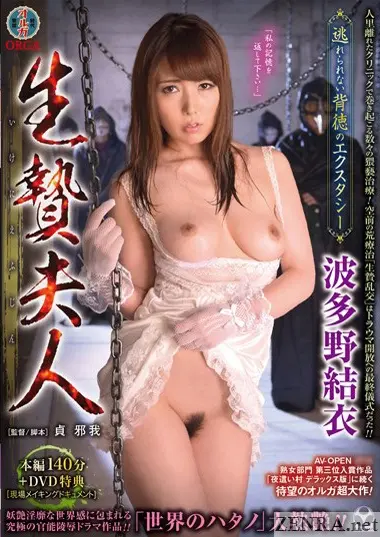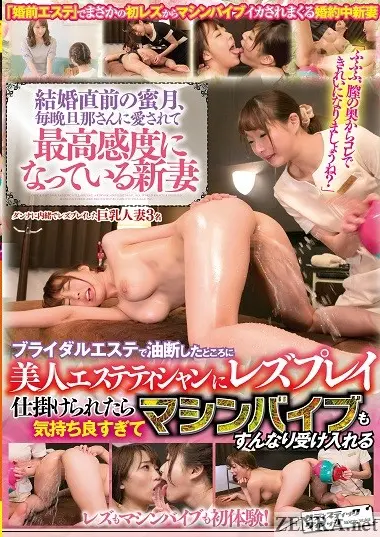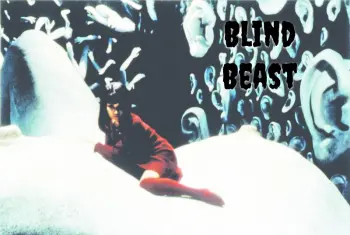Pink Film Reviews - Watcher in the Attic (1976)

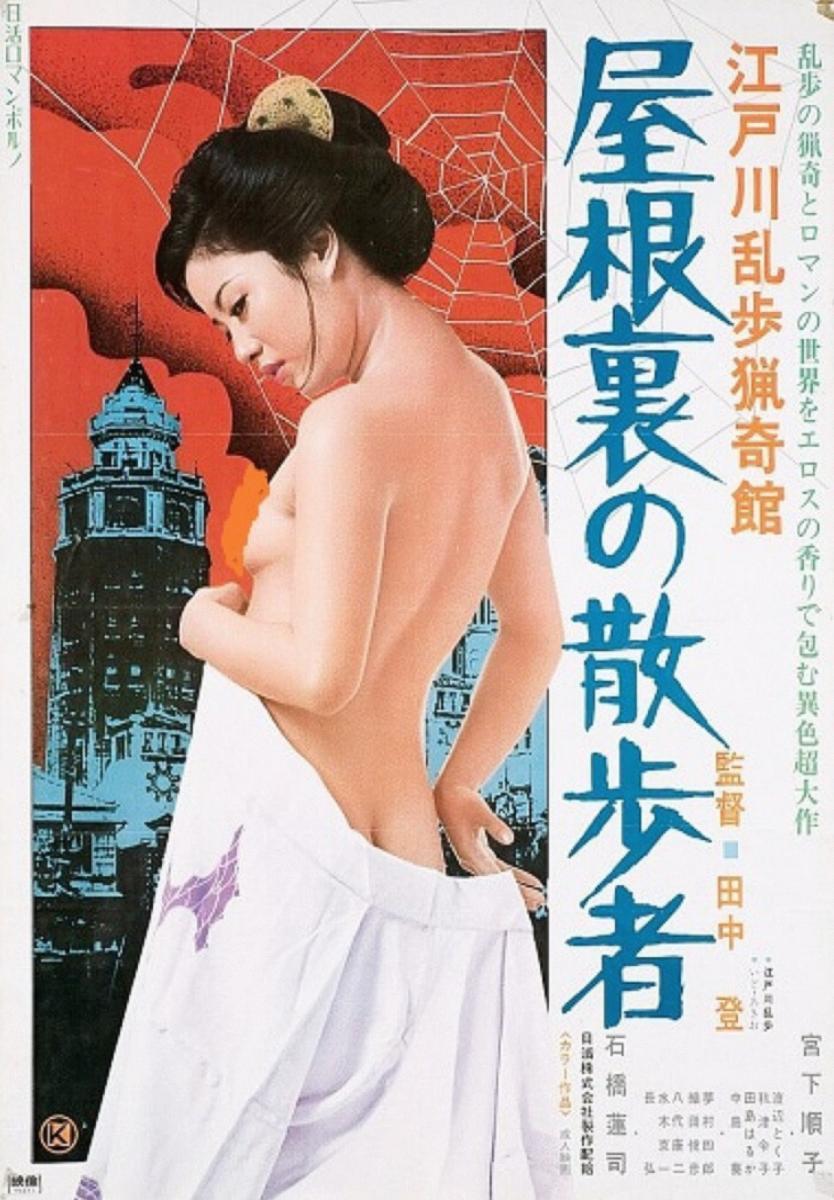 A Woman Called Sada Abe is the first of three thematically linked films known as the Showa Trilogy. So, having reviewed that film here, let's take a look at the next installment. Watcher in the Attic is based on an Edogawa Ranpo short story. Those expecting a faithful adaptation of said story will be sorely disappointed though, as the film takes the basic premise and not much else, combining its plot with that of "The Human Chair" (another Edogawa short story) and mixing in a bunch of new, original material. Watcher in the Attic simply expects you to already know the basic plot beats and characters of these stories before viewing it, and since the film's primary audience (Japanese people in the 70s) would know these things, the filmmakers evidently felt explanations were unnecessary. However, for anyone not from that specific context, you might have trouble initially figuring out who some of the characters are or what relationships and roles they have.
A Woman Called Sada Abe is the first of three thematically linked films known as the Showa Trilogy. So, having reviewed that film here, let's take a look at the next installment. Watcher in the Attic is based on an Edogawa Ranpo short story. Those expecting a faithful adaptation of said story will be sorely disappointed though, as the film takes the basic premise and not much else, combining its plot with that of "The Human Chair" (another Edogawa short story) and mixing in a bunch of new, original material. Watcher in the Attic simply expects you to already know the basic plot beats and characters of these stories before viewing it, and since the film's primary audience (Japanese people in the 70s) would know these things, the filmmakers evidently felt explanations were unnecessary. However, for anyone not from that specific context, you might have trouble initially figuring out who some of the characters are or what relationships and roles they have.
The premise of the original "Watcher" is that Goda Saburo, an idle rich kid, lives a listless life in Tokyo, subsisting on money sent from his parents. Initially without ambition, when Kogoro Akechi (Edogawa's famed detective character) moves into Goda's flat, Goda becomes obsessed with crime, and decides to attempt the perfect crime. What follows is a pretty standard howcatchem, as we go through Goda's poisoning of a fellow tenant and then Akechi's investigation of it. If you like mysteries, you'll probably enjoy "Watcher".
In the film though, while Goda remains a key character, his role is reduced to that of deuteragonist, and Akechi is nowhere to be found. Focus is instead shifted to Lady Minako Kiyomiya, an original character played by Junko Miyashita (our starlet from A Woman Called Sada Abe). The film version of Watcher is all about Lady Minako's personal journey, from stifled housewife to liberated killer, and how eroticism plays into this descent. While I was ambivalent in my review of Woman, I think Miyashita's performance in that film remains the best aspect of it. And with Watcher, being given a much more nuanced character to portray allows her to give an even more spectacular performance. She seamlessly transforms over the course of a 76-minute movie as greatly as Walter White transforms over 5 seasons of a tv show. And like Walter White, Lady Minako is captivating enough to make us keep watching even after she breaks bad. Also, despite being only 5'3", Lady Minako perfectly encapsulates the idea of being "leggy".
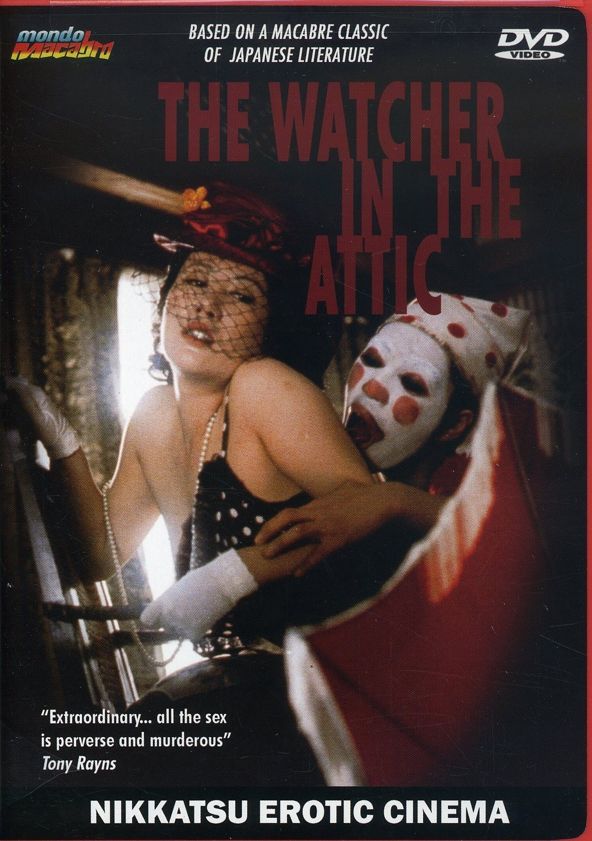 A major criticism I had with A Woman Called Sada Abe was how its sex scenes were laughably tame by modern standards, and as a result they quickly became boring. However, even if Watcher's sex scenes don't show anything more scandalous than bare breasts, there's enough variety in the people having sex and the types of sex being had to avoid the monotony of Woman. One scene will be playful and funny, while another will be awkward and uncomfortable, and another will be outright frightening, and with all these scenes, there is a plot or theme being furthered by its presence. Even though the sex scenes are often meant to be titillating, titillation is not their sole reason for existing. Rather, the film is interested in examining deeper ideas of sex and perversion, and uses scenes of explicit sex to aid in this examination.
A major criticism I had with A Woman Called Sada Abe was how its sex scenes were laughably tame by modern standards, and as a result they quickly became boring. However, even if Watcher's sex scenes don't show anything more scandalous than bare breasts, there's enough variety in the people having sex and the types of sex being had to avoid the monotony of Woman. One scene will be playful and funny, while another will be awkward and uncomfortable, and another will be outright frightening, and with all these scenes, there is a plot or theme being furthered by its presence. Even though the sex scenes are often meant to be titillating, titillation is not their sole reason for existing. Rather, the film is interested in examining deeper ideas of sex and perversion, and uses scenes of explicit sex to aid in this examination.
One of the things that separated Edogawa Ranpo from many of his contemporaries in detective fiction was his eagerness in exploring erotic themes with a Grand Guignol glee. Indeed, several of his more famous stories, such as "The Caterpillar" or "The Human Chair", aren't even mysteries at all, but rather stories of sexual obsession and frustration turning violent and grotesque. The film takes this erotic grotesquerie and centers it in its story. While Goda's prowling through the rafters of his apartment was a key feature of the original short story, in that Goda's prowling signified his feelings of superiority over everyone else. He spied on his fellow tenants and gazed down at them in the same way one would gaze down at an anthill, patronizingly admiring the funny little ants bustling about.
In contrast, the film version of Watcher explicitly links his spying with voyeurism. When Goda spies Lady Minako having sex with a clown in one room (long story), it awakens something dark and evil in him. And, similarly, noticing Goda, and subsequently getting turned on by him watching her, is what starts Lady Minako's journey into darkness. You could make the case that Goda and Lady Minako were bad seeds to begin with, and that the kinky sex they engage in over the course of the film is simply the spark for them to unleash their inner sociopathy, like a cancer diagnosis was for Walter White. However, the film still has this sociopathy linked with and caused by kinky sex. Instead of a looming death, a specific lifestyle is what turns these characters into killers. And, given how in the short story Goda didn't decide to try crime because he was a rich kid who never had to face consequences in his life, but rather because of his "deviance" with cross-dressing, this linking of sexual perversion with moral perversion has its roots in the original story.
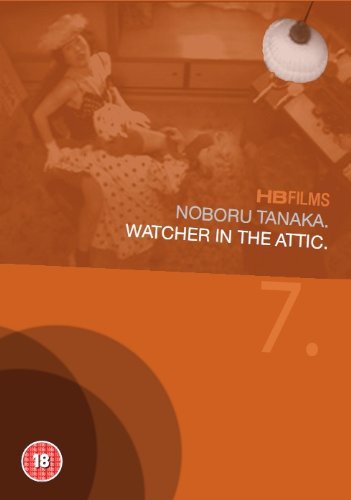 The reason I find this noteworthy, and why I think it will be a potential stumbling block for viewers, is that this is a pink film, a bawdy movie, a porno with plot (back when people still watched porn in theaters). And yet, its attitudes towards unconventional sex is one of fear and distrust. If you're telling people who watch dirty movies "Doing dirty things will turn you into a monster!", that's not exactly going to endear you towards your audience. But that's essentially what the film's message is.
The reason I find this noteworthy, and why I think it will be a potential stumbling block for viewers, is that this is a pink film, a bawdy movie, a porno with plot (back when people still watched porn in theaters). And yet, its attitudes towards unconventional sex is one of fear and distrust. If you're telling people who watch dirty movies "Doing dirty things will turn you into a monster!", that's not exactly going to endear you towards your audience. But that's essentially what the film's message is.
It's especially baffling because the only time we see "normal" sex is when Lady Minako lies back and thinks of England (or Japan, I suppose) as her husband has his way with her. Lady Minako's whole character is that she's a rich girl who was effectively sold to her patriarch's business partner to ensure said partner's loyalty. This man is twice her age and very clearly sees her as a prize he's won and not an actual person. And Lady Minako is obviously frustrated and miserable with her existence, her sex with a clown being a time when she can take charge n the bedroom and enjoy herself freely (it's one of the few times we see her genuinely smile). Are we really supposed to think that Lady Minako should have remained a "good girl" and never messed with that kinky lifestyle, as though this were a Tyler Perry Afterschool Special?
I'm familiar with enough Victorian and Medieval erotica to know that outward condemnation of kinky sex has historically made a good figleaf to avoid censorship of erotic works. Like, yes, it's very naughty what these characters are doing, but it's also very wrong and you shouldn't really do it yourself, wink-wink. However, it is surprising to see Lady Minako and Goda go straight from kinky sex to murder with no stops in between, and for the film to label this link as causal, especially for a work that came out in 1976 instead of 1876.
Neither the film nor the short story seem to consider the idea that Lady Minako and Goda could be driven to crime because they are affluent and bored and would be insulated from any consequences should they take another life. Instead they have to offer some deviance from polite societal norms as a motivation for their crimes, like having sex with clowns, exhibitionism, or cross-dressing. In the end, it comes across as moral panicking, and more specifically moral panicking whose targets of fear are those exact same people who would be watching this movie.
Watcher in the Attic is an improvement on A Woman Called Sada Abe in every way. However, its hostility towards viewers unfamiliar with the source material and its moral message may rub some folks the wrong way, to the point where while I would still recommend it, I can't do so unreservedly. I would encourage people to read Ranpo before watching Watcher. And even then, if you don't much care for a dirty movie that wants you to feel bad about watching dirty movies, perhaps you should simply steer clear.
Have a pink film you'd like me to review? Leave a comment down below.
By Anton Algren @ February 23rd, 2023
By Panking @ June 7th, 2021
By Syndrome @ December 15th, 2023







